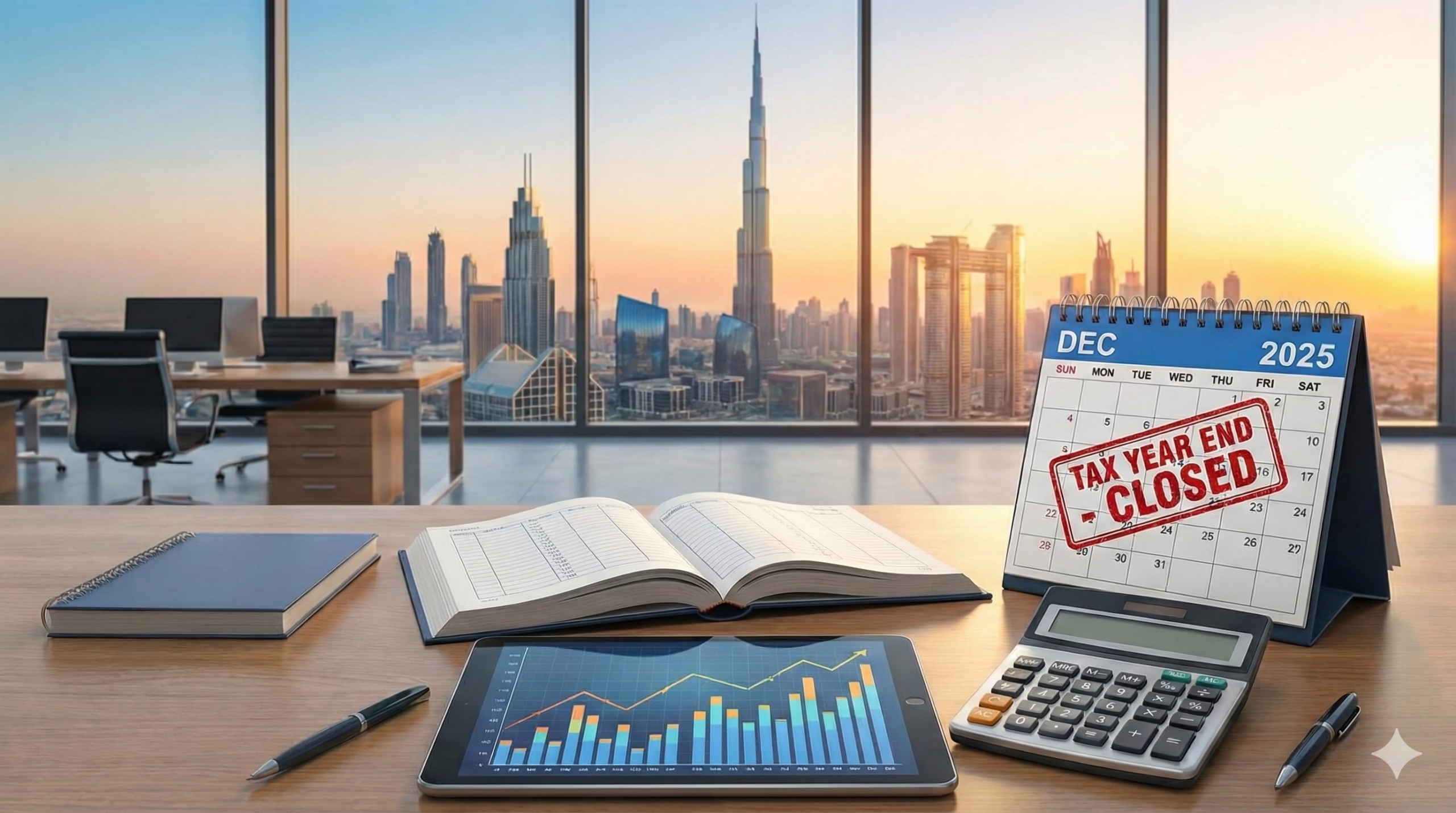

Understanding VAT (Value Added Tax) in the UAE can be tricky, especially when it comes to zero-rated and exempt supplies. Many businesses assume they are the same because both categories do not require charging VAT to customers, but in reality, they have very different tax implications.
Knowing the difference between zero-rated and exempt VAT is crucial for businesses to handle VAT filings correctly, reclaim tax efficiently, and avoid compliance mistakes. If your business deals with exports, healthcare, education, real estate, or financial services, you need to understand how these VAT classifications work.
This guide will break down the key differences between zero-rated and exempt VAT, explain how they impact businesses, and help you ensure your VAT filings are accurate to avoid penalties from the Federal Tax Authority (FTA).
Zero-rated VAT applies to certain goods and services where VAT is charged at 0%, meaning businesses do not collect VAT from customers. However, the biggest advantage of zero-rated transactions is that businesses can still reclaim the VAT paid on expenses related to these sales.
This is particularly beneficial for businesses that buy materials, pay for operational costs, or invest in services that are subject to VAT. Even though they are selling products or services at 0% VAT, they can claim back the input VAT they have paid, reducing overall tax costs.
The UAE’s VAT law specifies that only certain types of transactions qualify for zero-rating, such as exports, international transportation, new residential properties, and key sectors like healthcare and education.
To ensure compliance, businesses must provide documentation proving that a supply qualifies for zero-rated VAT. If a company fails to keep proper records, the FTA may reject their VAT refund claims, leading to financial losses.

VAT-exempt transactions are different because no VAT is charged, and businesses cannot reclaim any VAT paid on related expenses. This means that if a business provides VAT-exempt services, any VAT it pays on purchases, office rent, supplies, or operational costs becomes an expense that cannot be recovered.
Exempt VAT applies to specific industries and transactions, including certain financial services, local passenger transport, and some real estate transactions.
Since businesses dealing in VAT-exempt supplies cannot claim back input VAT, they must carefully manage their pricing and cost structure to avoid unnecessary tax burdens. Many companies in exempt sectors find that VAT becomes a hidden cost, affecting profitability if not managed properly.
Understanding the difference between zero-rated and exempt VAT is critical for businesses operating in the UAE. While both categories mean that no VAT is charged to customers, their impact on VAT recovery, tax filings, and overall business costs is very different. Misclassifying transactions can lead to compliance issues, financial losses, and even penalties from the Federal Tax Authority (FTA).
To ensure your business applies VAT correctly and maximizes tax efficiency, here are the key differences explained in a clear and strategic manner:
The biggest difference between zero-rated and exempt VAT is whether a business can recover VAT on expenses.
If a business sells zero-rated goods or services, it can claim back VAT paid on business expenses related to those sales. This means companies operating in sectors such as exports, healthcare, or education can recover VAT on operational costs, supplier invoices, and administrative expenses.
However, if a business provides VAT-exempt services, it cannot reclaim VAT on expenses, even if VAT was paid on rent, supplies, or business operations. This is a major financial consideration because VAT effectively becomes an unrecoverable cost, reducing overall profitability.
For businesses that operate in both zero-rated and exempt categories, careful cost allocation and record-keeping are essential to ensure that only eligible VAT is reclaimed while avoiding incorrect tax filings.

Businesses engaged in zero-rated activities must register for VAT if their taxable turnover exceeds AED 375,000 per year. Even if a company is not required to register, it may still choose to register voluntarily to benefit from VAT recovery on expenses.
On the other hand, businesses dealing only in VAT-exempt supplies cannot register for VAT and are not required to file VAT returns. This means they are unable to reclaim VAT on costs, which can increase operational expenses over time.
A business that has both taxable and exempt supplies must determine whether VAT registration is beneficial or necessary based on its revenue structure. If a company has high input VAT costs but mainly provides exempt services, the inability to reclaim VAT can result in higher-than-expected tax expenses.
Since zero-rated businesses are VAT-registered, they must file VAT returns regularly with the FTA, even though they do not collect VAT from customers. Filing is essential because it allows them to recover VAT paid on expenses. Businesses that fail to file returns correctly risk losing VAT recovery benefits and may face tax audits or fines.
In contrast, businesses that only provide VAT-exempt services are not required to file VAT returns. While this might seem like a compliance advantage, it also means that they cannot claim back VAT on business costs, leading to higher operating expenses.
Companies that have a mix of zero-rated, exempt, and taxable supplies need to ensure accurate VAT reporting to avoid tax errors. Incorrect VAT returns can trigger FTA investigations and financial penalties.

Zero-rated businesses do not need to charge VAT but can still recover VAT on expenses, allowing them to keep costs lower and maintain competitive pricing. Since VAT can be reclaimed, it does not affect profit margins significantly.
However, VAT-exempt businesses must absorb VAT costs, meaning they must adjust pricing to cover unrecoverable VAT expenses. This often results in higher prices for customers to offset the additional tax burden.
For example, a financial services company that provides VAT-exempt services will pay VAT on office rent, software subscriptions, and administrative costs but cannot reclaim that VAT. To remain profitable, it must increase service charges to account for the tax cost, which can make its offerings less competitive.
Businesses should regularly review pricing strategies to ensure they are accounting for VAT costs correctly. If VAT is impacting profitability, they should explore ways to reduce taxable expenses, negotiate with suppliers, or restructure transactions to optimize VAT treatment.
Businesses that supply zero-rated goods or services must maintain detailed documentation to prove eligibility for the 0% VAT rate. The FTA requires businesses to provide export declarations, invoices, and supporting documents to justify zero-rating. Failure to provide proper records can lead to tax reassessments and additional VAT liabilities.
On the other hand, businesses dealing in VAT-exempt supplies do not need to maintain VAT records for tax reporting, since they do not file VAT returns. However, proper bookkeeping is still essential for financial tracking and audit purposes.
A common compliance mistake businesses make is not keeping clear records of mixed-use expenses (expenses that relate to both taxable and exempt activities). The FTA may reject VAT recovery claims if expenses are not properly classified, resulting in lost tax refunds.
To stay compliant, businesses should use VAT-compliant accounting software, conduct regular VAT audits, and ensure all invoices meet FTA requirements.

Real estate transactions are subject to both zero-rated and exempt VAT treatments, depending on the type of property and transaction structure.
For zero-rated real estate transactions, the first sale of newly constructed residential properties within three years of completion is zero-rated at 0%. This means developers do not charge VAT to buyers but can recover VAT on construction costs and development expenses.
For VAT-exempt real estate transactions, the sale or lease of residential properties (after the first supply) is VAT-exempt, meaning landlords and property owners do not charge VAT but also cannot reclaim VAT on related costs such as maintenance and repairs.
Commercial real estate transactions, however, are generally subject to 5% VAT and do not fall under zero-rated or exempt categories.
Investors and developers must carefully structure transactions to ensure they apply the correct VAT treatment, allowing them to maximize VAT recovery and minimize tax liabilities.
Zero-rated businesses benefit from VAT refunds, which can improve cash flow and reduce financial strain. Since they can claim back VAT on purchases and expenses, they can reinvest more capital into business operations and expansion.
Exempt businesses, however, absorb VAT as a cost, which can restrict cash flow and limit growth opportunities. Over time, unrecoverable VAT costs can make operations more expensive, especially for businesses that rely heavily on VAT-taxable supplies and services.
Companies that fall under both VAT-exempt and taxable categories should carefully plan cash flow by optimizing VAT recovery, reducing taxable expenses, and structuring financial transactions to minimize unrecoverable VAT costs.

The UAE government applies zero-rated VAT to specific transactions that support economic growth, international trade, and essential public services. Businesses involved in these activities must ensure that they meet the requirements to apply zero-rating correctly.
Goods exported outside the UAE are zero-rated, provided businesses can prove that the goods have left the country. This requires proper documentation, including customs export declarations, shipping records, and proof of receipt by the foreign buyer.
Similarly, international services—such as consultancy, advisory, and professional services—can be zero-rated if the client is located outside the UAE. If a company fails to meet the FTA’s proof requirements, the export transaction may be taxed at 5% instead of 0%, leading to compliance issues.
Airline tickets for international flights, cargo shipments, and services related to international transportation (such as aircraft repairs and port fees) are zero-rated to support the UAE’s position as a global logistics hub.
The UAE government considers healthcare and education essential services, which is why they qualify for zero-rated VAT. However, zero-rating applies only to approved institutions and services. Private clinics, hospitals, and schools that meet the FTA’s criteria do not charge VAT on tuition fees and medical treatments but can still reclaim VAT on operational expenses.
The first sale or lease of a newly constructed residential property is zero-rated if it takes place within three years of construction. Developers benefit from this rule because they can recover VAT on construction costs, keeping housing prices competitive.

Exempt transactions do not attract VAT, and businesses involved in these activities cannot reclaim VAT on related expenses, making cost management critical.
Banking, lending, insurance, and investment-related services are generally VAT-exempt, meaning banks and financial institutions do not charge VAT on most of their services. However, financial institutions must absorb VAT on operational costs, which can impact profitability if not managed properly.
Taxis, metro services, buses, and other forms of local passenger transport are VAT-exempt, allowing public transportation to remain affordable. However, transportation companies cannot reclaim VAT on fuel, maintenance, or other business expenses, which affects their cost structure.
Unlike commercial properties, long-term residential leases are VAT-exempt. Landlords renting out apartments or villas do not charge VAT on rent, but this also means they cannot recover VAT on maintenance, property management, or repairs. This rule affects property investors, as they must account for VAT as a cost when setting rental prices.
Sales of undeveloped land are VAT-exempt, meaning buyers do not pay VAT on the purchase price. However, VAT paid on legal fees, registration, and associated costs cannot be reclaimed, making tax planning essential for investors.
Many businesses make costly mistakes by misapplying VAT rules, leading to incorrect tax filings, rejected VAT refunds, or unexpected tax liabilities. To ensure compliance, businesses should take a structured approach to VAT classification and reporting.
Understanding the nature of your transactions is the first step. If your business provides zero-rated goods or services, you must maintain detailed records proving eligibility to avoid tax disputes. If your business falls under VAT-exempt categories, it’s essential to manage costs efficiently, since VAT cannot be recovered.
Regular VAT audits and compliance checks help businesses identify and correct errors before they result in penalties. Working with a VAT expert can help ensure that VAT is applied correctly, maximizing tax efficiency and preventing compliance risks.
Handling zero-rated and exempt VAT correctly is crucial for ensuring compliance, minimizing tax costs, and optimizing VAT recovery. Many businesses struggle with VAT classification, leading to unnecessary tax payments or incorrect filings.
At Protax Advisors, we help businesses:
If you want to ensure your VAT is handled correctly, book a free consultation today with Protax Advisors and let our experts help you maximize VAT efficiency while staying fully compliant with UAE tax laws.




Schedule a consultation call and learn how our expertise in accounting and tax services can benefit your business.